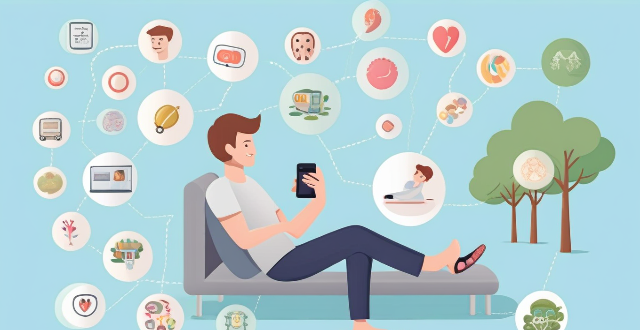The article discusses the negative effects of playing too many mobile games, including physical health risks such as eye strain, neck and back pain, poor sleep quality, and a sedentary lifestyle. Mental health risks include addiction, anxiety and depression, impaired social interactions, and decreased attention span. Financial risks involve in-app purchases and data usage. The article concludes that moderation is key to avoiding these negative effects and suggests setting limits on gaming time, taking breaks, and engaging in other activities that promote physical and mental well-being.

The Negative Effects of Playing Too Many Mobile Games
Playing mobile games can be a fun and entertaining way to pass the time, but excessive gaming can have negative effects on both physical and mental health. In this article, we will explore some of the potential negative consequences of playing too many mobile games.
Physical Health Risks
1. Eye Strain: Staring at a small screen for extended periods can cause eye strain, dryness, and fatigue. This can lead to headaches, blurred vision, and even long-term vision problems.
2. Neck and Back Pain: Maintaining an uncomfortable posture while playing games can result in neck and back pain. This is especially true if you are hunched over your device for hours at a time.
3. Poor Sleep Quality: The blue light emitted by mobile devices can disrupt your sleep cycle, making it harder to fall asleep and stay asleep. Lack of quality sleep can lead to fatigue, decreased productivity, and mood swings.
4. Sedentary Lifestyle: Spending too much time playing games can reduce your physical activity levels, which can contribute to weight gain, obesity, and other health issues related to a sedentary lifestyle.
Mental Health Risks
1. Addiction: Like any form of entertainment, mobile games can be addictive. Excessive gaming can lead to compulsive behavior, where individuals feel the need to play games constantly, often at the expense of other important activities such as work, school, or social interactions.
2. Anxiety and Depression: While gaming can provide temporary relief from stress, excessive gaming can actually increase anxiety and depression symptoms. This is because gaming may serve as a coping mechanism for underlying emotional issues, preventing individuals from addressing and managing their problems in a healthy way.
3. Impaired Social Interactions: Spending too much time playing games can lead to reduced face-to-face social interactions, which are essential for developing strong interpersonal skills and maintaining healthy relationships with others.
4. Decreased Attention Span: Constant exposure to fast-paced games can make it difficult for individuals to focus on tasks that require sustained attention, such as reading or completing assignments. This can negatively impact academic performance and job productivity.
Financial Risks
1. In-App Purchases: Many mobile games are designed to encourage players to make in-app purchases, which can quickly add up and lead to financial problems if not managed carefully.
2. Data Usage: Playing games on mobile devices can consume large amounts of data, leading to increased data charges if you exceed your plan's limits.
Conclusion
While playing mobile games can be enjoyable, it is important to strike a balance between gaming and other aspects of life. To avoid the negative effects mentioned above, consider setting limits on your gaming time, taking breaks to stretch and move around, and engaging in other activities that promote physical and mental well-being. Remember, moderation is key!